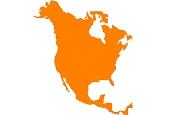Government/Policy

September 29, 2017
NAFTA Round Three Produces Limited Results
Written by Sandy Williams
The third round of NAFTA discussions ended Wednesday with consensus on small and medium enterprises.
The chapter on small and medium-size enterprises will enhance “their ability to participate in and benefit from the opportunities created by this agreement, including through cooperative activities, information sharing, and the establishment of a NAFTA Trilateral SME Dialogue, involving the private sector, non-government organizations, and other stakeholders,” said a statement on the issue.
Proposals on government procurement, textiles and fresh produce are proving prickly, with Canadian and Mexican officials seeing little or no hope of agreement.
The U.S. wants a bigger share of government procurement contracts. The U.S. proposes that the value of Canadian and Mexican contracts combined cannot exceed the value that U.S. firms could win in the other two countries.
On the question of textiles, the U.S. wants to eliminate over the next two years preferential tariffs on textiles from Canada and Mexico. U.S. proposals on fresh produce would open products like fruit to dispute-resolution mechanisms that could lead to tariffs on Mexican exports.
U.S. Trade Representative Robert Lighthizer told reporters Wednesday that “significant progress continues to be made” in areas including competition, state-owned enterprises, digital trade and telecommunications. He added that there is still “an enormous amount of work to be done, including on some very difficult and contentious issues.”
One of those contentious issues will be rules of origin. In the next round of negotiations, the United States is expected to present proposals on rules of origin for NAFTA-produced automobiles that will ask for increased U.S.-produced content.
The recent tariffs on Canadian-built Bombardier aircraft may throw a wrench in the talks, as well. In a preliminary determination, Commerce slapped duties of 220 percent on Bombardier C Series jets that would effectively stop the import of the planes from Canada to the United States. Boeing filed for a dumping and countervailing investigation asserting that Bombardier planes were being sold to U.S. firms at below market prices due to subsidization. The World Trade Organization announced Friday that it will establish a panel to review C Series subsidies.
“While this is only a preliminary stage in the investigation, and no duties can be imposed until the final investigations are completed, Canada strongly disagrees with the anti-dumping and countervailing duty investigations into imports of Canadian large civil aircraft,” Canadian Foreign Minister Chrystia Freeland said in a statement. “This is clearly aimed at eliminating Bombardier’s C Series aircraft from the U.S. market.”
Trump has repeatedly threatened to withdraw completely from the agreement if favorable U.S. terms are not met. So far, Canada and Mexico have downplayed the threats and say they are committed to constructive talks to renegotiate the agreement.
The fourth round of NAFTA talks will be held Oct. 11-15 in Washington, D.C.







